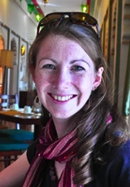Following hot on the heels of a two-day workshop at Cass Business School on ‘Muslim Giving: Creating Real Change’, the Sanne Philanthropic Foundation hosted a very interesting lunch discussion on the topic of ‘Muslim Philanthropy: Rising to the Challenge’ on 18 January in London. It seems Muslim philanthropy is a significant subject at the moment, but what exactly does this term mean? And what are the specific challenges that it faces?
Dr Tariq Cheema, founder and CEO of the World Congress of Muslim Philanthropists, described Muslim giving as philanthropy inspired by faith, but which should include giving to all who are in need, regardless of any race or religion. There is a large amount of wealth available in this area with the potential to do good, yet only a small portion of this is institutionalized and the results don’t necessarily reflect the amount of investment. However, with post 9/11 terror financing laws leading donors to become understandably hesitant about what they fund, perhaps further support is needed to promote a positive image of Muslim philanthropy and highlight the impact that it could have.
Dr Cheema says that most Muslim philanthropy is sizeable but often unplanned, which can result in sloppy giving which does not have as much impact as it could. Traditionally, many who are inspired to give will make relatively conventional donations – for building schools, supporting religious institutions, responding to natural disasters. However, little thought is often given to accountability, planning or long-term strategy. Much of the discussion stressed the importance of shifting the focus from simple day-to-day giving towards a more considered, long-term approach to avoid remaining behind in social development. As Gillian Arthur, director of the Sanne Philanthropic Foundation, phrased it, many donors in this area just apply a bandaid to fix things on the surface rather than considering the role they could have in solving complex problems.
One of the most pertinent questions raised during this discussion was how to move from conventional to strategic giving? The challenge is to encourage people to stretch their thinking to be outside of the box, particularly with alternative approaches to grantmaking such as social investment or venture philanthropy.
Myrna Atalla, managing director of Alfanar, provided some great examples of how philanthropy can be so much more than just a charitable donation. Describing itself as a venture philanthropy organization, Alfanar searches for grassroots organizations that offer good solutions and provide anything from direct investments to management guidance. Atalla spoke of their work with a Montessori pre-school located in the slums in Cairo, which has grown to become a training hub for other nurseries, offers additional support such as classes on parenting skills and even develops its own low-cost resources from recycling materials. It aims to create long-term civil society models which are scalable and can make a real impact – a huge leap forward from simply making a one-time donation.
A number of questions emerged from the discussion, including a number of people asking about funding for issues which are harder to measure. Opinion was divided on whether funders with religious motivations have an appetite for becoming involved with human rights. Another point raised was that perhaps it is the role of wealth in society that should be discussed further, given the pockets of extreme independent wealth that exist in the Arab region.
As a global network aiming to advance effective and accountable giving, the World Congress of Muslim Philanthropists seems well placed to encourage donors to look at questions of impact and it will be interesting to see whether this area experiences a shift towards more strategic giving.
Jenny Conrad is Communication & Circulation Officer at Alliance magazine.
Those interested in this topic may also wish to read Alliance magazine’s special feature on Responding to the hopes of the Arab Spring, which includes articles such as:






Comments (0)